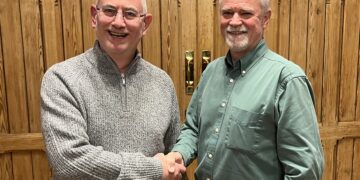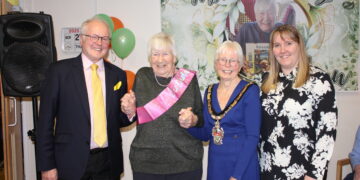MORE than 100 people took part in a launch event for the Social Care Future movement in Wokingham Borough.
The day was all about changing the perception of adult social care and finding a way to ensure that people who draw on support are central to the process.
The event was held at the Oakwood Centre in Woodley, and was attended by those with lived experience of social care, as well as representatives from the voluntary and community sector.
Optalis, which provides care and support services to older people and disabled adults in the borough was also represented, along with staff from across Wokingham Borough Council’s adult services, including occupational therapy, the sensory needs team and technology enabled care service.
Social Care Future is a national movement of people committed to bringing about positive change in adult social care.
Guest speaker Tricia Nicoll introduced the phrase ‘gloriously ordinary lives’, which for her sums up what people want if they have to draw upon social care support.
Gregg Burgess-Salisbury spoke about his experience after he was diagnosed with a degenerative condition.
Then a group of adults with learning disabilities performed using a table-top puppet, set and props.
The piece expressed their feelings about good and bad support, barriers and achievements in life, and about not accepting limitations.
Attendees were invited to connect, chat, and take part in workshops designed to spark ideas and inspiration and give people an opportunity to discuss what a better social care future would look like in the borough.
There was also a ‘try it out’ space, where guests could explore equipment and technology that can help people to live more independently.
Cllr David Hare, executive member for health, wellbeing and adult services, said: “As a council, we value the ethos of working in partnership.
“When it comes to social care we can, and should, take that to the next level by working with every individual to understand their unique needs and what they want their life to look like.
“People should be able to direct what their care looks like and not be beholden to a process that is daunting and does not offer a two-way conversation about what works and what needs to be improved.
“We know there are some limitations to what can be achieved due to the lack of funding we, and other councils, receive from central government.
“While we implore the government to better fund social care, we will continue to work as hard as possible to control what is in our power.
“We will work closely with our residents and ensure they feel valued when it comes to the way they and their loved ones are supported.”
A Social Care Future Group has been established at a local level, made up of people across social care, the voluntary and community sector and people who draw on care and support.
The group has since developed a charter to summarise how people can support the movement.
Jodie, a member of the group, said: “The purpose of the event was to grow the commitment to the Social Care Future vision locally.
“We understand that it will take time and resources to see the change we want to see, but we also need people who are passionate about changing the way social care is organised and those who are focussed on helping people achieve gloriously ordinary lives.
“It was great to see so many people come together and share in such a supportive and inclusive day of celebration, learning and planning for a better future.”
For more information visit: www.socialcarefuture.org.uk












































